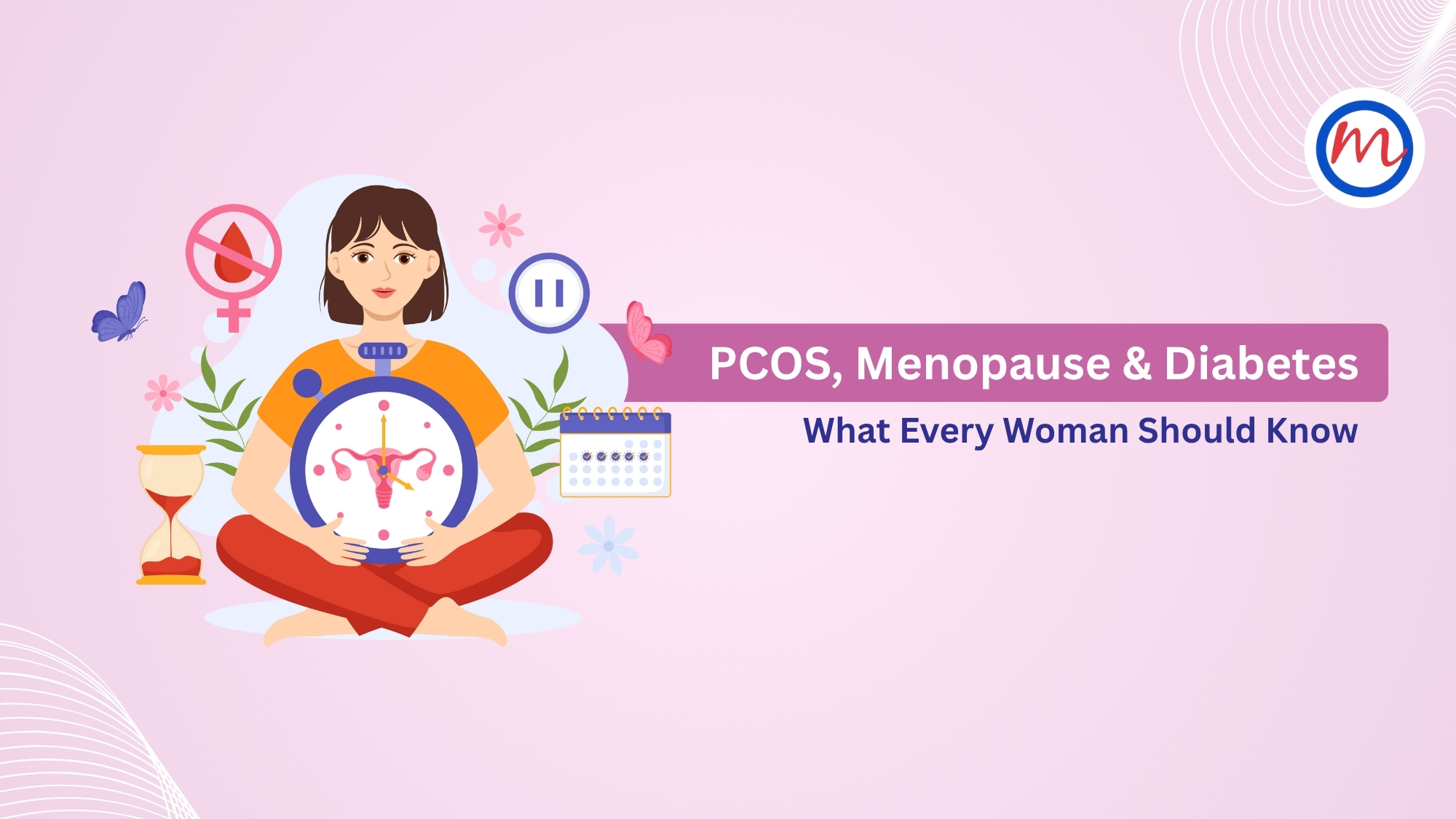PCOS, Menopause & Diabetes: What Every Woman Should Know
Introduction
Hormonal health plays a crucial role in the risk and management of diabetes in women. Two key conditions—Polycystic Ovary Syndrome (PCOS) and menopause—are often linked to increased insulin resistance, making women more vulnerable to developing type 2 diabetes. This article explores the connection between PCOS, menopause and diabetes, offering practical advice for prevention and management.
Understanding PCOS and Its Link to Diabetes
PCOS is a hormonal disorder common among women of reproductive age. It is characterised by irregular periods, excessive androgen levels and polycystic ovaries. One of the most significant concerns is the impact PCOS has on insulin sensitivity. This insulin resistance can eventually progress to type 2 diabetes if not managed early.
- Menopause and Blood Sugar Changes: Menopause marks the end of menstrual cycles and comes with a decline in oestrogen and progesterone. These hormonal changes can affect how the body uses and responds to insulin.
- Weight gain & fat distribution: Postmenopausal women are more likely to gain weight, especially around the abdomen, which further worsens insulin resistance.
- Worsening glycaemic control: Blood sugar levels may fluctuate more often due to hormonal imbalances.
Why Women Should Be Concerned
The dual impact of PCOS in younger years and menopause later in life creates a lifelong diabetes risk. Women may go undiagnosed with PCOS and discover diabetes symptoms only during or after menopause.
Recognising the Symptoms
- Unexplained weight gain
- Irregular or missed periods
- Excess facial or body hair
- Hot flashes and night sweats
- Fatigue and frequent urination (diabetes symptoms)
Tips for Managing Hormonal Imbalance and Insulin Resistance
- Stay Active
Regular physical activity improves insulin sensitivity and supports hormonal balance. Aim for at least 30 minutes of moderate-intensity exercise most days of the week. - Choose a Balanced Diet
A fibre-rich, low glycaemic index diet helps regulate blood sugar and hormones. Include vegetables, whole grains, legumes and lean proteins.
- Monitor Blood Sugar Regularly
If you have PCOS or are approaching menopause, regular screening can help detect blood sugar changes early. - Manage Stress
Chronic stress impacts both hormones and blood sugar. Techniques like yoga, meditation or even a daily walk can reduce stress.
- Speak to a Doctor
An endocrinologist or diabetologist can guide women through personalised prevention strategies, especially if there is a family history of diabetes.
When to Get Screened
- Women with PCOS
- Women over 40: Annual screening, especially post-menopause
- Family history or overweight: Earlier and more frequent tests
Conclusion
Whether you are living with PCOS, going through menopause, or somewhere in between, understanding the link between hormonal imbalance and diabetes is essential. With the right lifestyle changes and timely medical care, you can protect your long-term health.

Leave a Reply